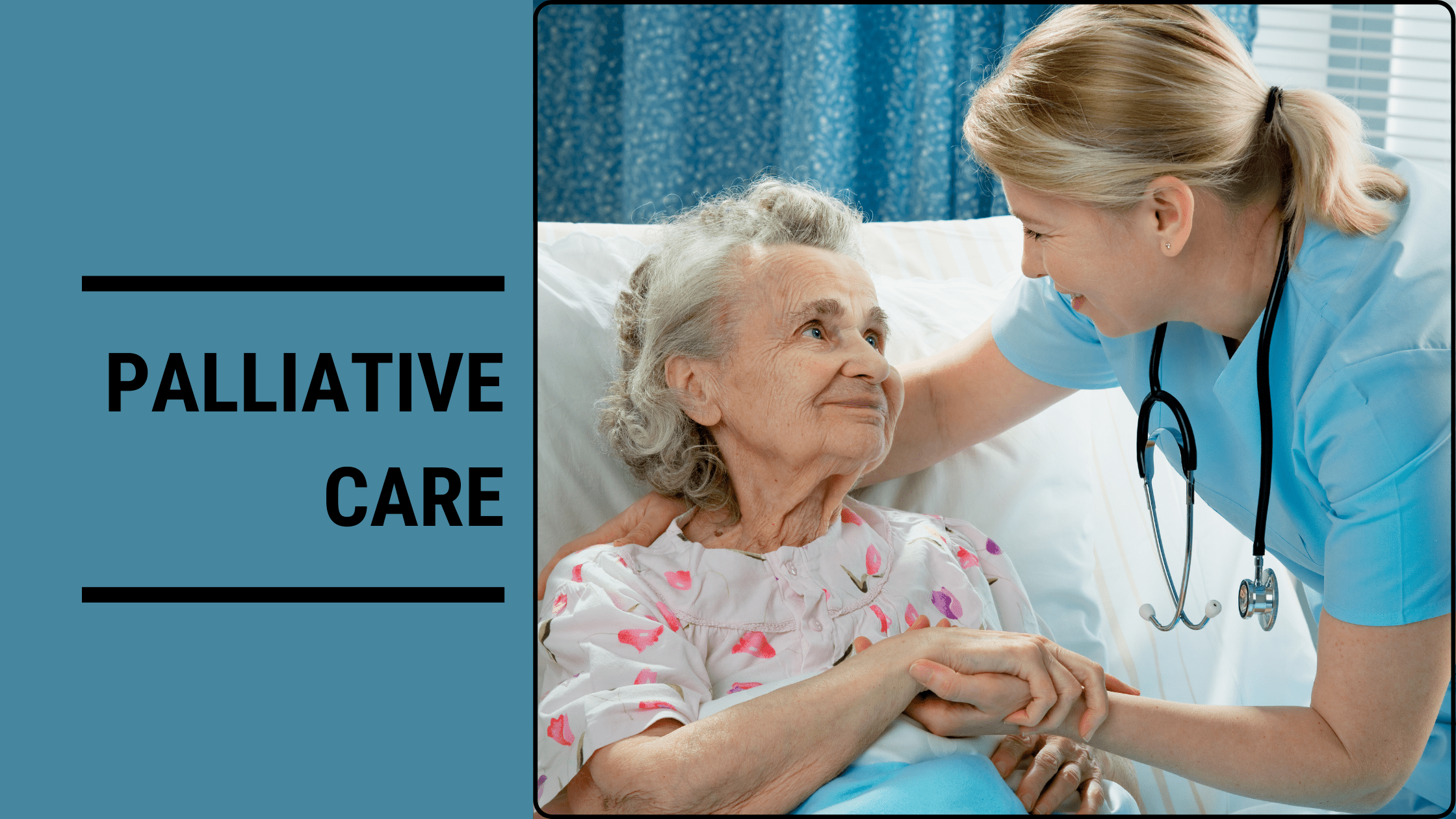Retirement homes, also known as senior living communities or assisted living facilities, are places where seniors can enjoy a comfortable and supportive environment during their golden years. While these settings are designed to provide a high quality of life for seniors, it’s crucial to recognize the importance of palliative care within retirement homes.
Palliative care offers essential support and comfort to residents with serious illnesses, ensuring that they receive compassionate care and maintain their dignity throughout their final journey.
In this blog, we’ll delve into the significance of palliative care in retirement homes and how it enhances the overall well-being of residents.
Ensuring Comfort and Pain Management:
Palliative care in retirement homes focuses on managing pain and alleviating symptoms for residents with life-limiting illnesses. This specialized care ensures that residents are as comfortable as possible, allowing them to maintain a good quality of life even in the face of illness. The goal is to enhance their overall well-being by minimizing suffering and discomfort.
Emotional and Psychological Support:
Serious illnesses can take a toll on a resident’s emotional and psychological well-being. Palliative care professionals in retirement homes provide essential emotional support, addressing feelings of anxiety, depression, and fear. They help residents and their families navigate the emotional challenges that come with a serious diagnosis, promoting peace of mind and emotional stability.
Enhancing Communication and Decision-Making:
Palliative care teams facilitate open and honest communication between residents, their families, and healthcare providers. They help residents make informed decisions about their care, including choices about treatments, end-of-life care, and advance directives. This ensures that residents’ preferences are respected and their wishes are fulfilled, leading to a more dignified end-of-life experience.
Maintaining Dignity and Autonomy:
Preserving residents’ dignity and autonomy is a fundamental principle of palliative care in retirement homes. The care is patient-cantered, emphasizing residents’ preferences, values, and goals. It respects their choices about their care, allowing them to retain a sense of control over their lives, even as their health declines.
Holistic Care Approach:
Palliative care takes a holistic approach, addressing the physical, emotional, social, and spiritual needs of residents. In retirement homes, this comprehensive approach ensures that residents receive care that aligns with their values, beliefs, and cultural preferences, promoting a sense of wholeness and fulfilment.
Quality of Life Enhancement:
The primary goal of palliative care is to enhance the quality of life for residents. In retirement homes, this translates to helping residents engage in meaningful activities, fostering social connections, and providing emotional support. This focus on overall well-being enriches the residents’ lives, allowing them to enjoy their retirement years to the fullest.
Collaborative Care:
Palliative care in retirement homes in Trivandrum often involves a multidisciplinary team of healthcare professionals, including doctors, nurses, social workers, chaplains, and therapists. This collaborative approach ensures that residents receive well-coordinated and comprehensive care, addressing a wide range of physical, emotional, and social needs.
Collaborative Care Approach:
Palliative care in retirement homes often involves a multidisciplinary team of healthcare professionals working together to provide the best possible care. This collaborative approach ensures that residents receive a well-rounded and holistic care plan. Physicians, nurses, social workers, therapists, and other specialists collaborate to address physical, emotional, and social needs comprehensively.
Continuity of Care:
Palliative care in retirement homes offers continuity of care, which means that residents can receive all their necessary medical, emotional, and supportive services in one place. This eliminates the need for frequent hospitalizations or transfers between healthcare facilities, reducing stress and disruption for residents and their families.
Respecting Cultural and Spiritual Beliefs:
Palliative care in retirement homes is sensitive to the diverse cultural and spiritual backgrounds of residents. Care providers work to understand and respect each resident’s beliefs and preferences, tailoring care plans accordingly. This cultural competence ensures that residents receive care that is both respectful and meaningful to them.
Continuity of Care:
Palliative care in retirement homes is not a one-time intervention but an ongoing process. It adapts to the changing needs of residents as their health condition evolves. This continuity of care ensures that residents receive consistent support throughout their journey, promoting a sense of security and trust.
Education and Training:
Palliative care teams in retirement homes often provide education and training to staff members to ensure that everyone is equipped with the knowledge and skills necessary to provide compassionate end-of-life care. This investment in staff development enhances the overall quality of care provided to residents.
Managing Medications and Treatment:
Palliative care teams in retirement homes are experts in managing complex medication regimens and treatment plans. They ensure that residents receive the right medications at the right time, monitor side effects, and make necessary adjustments to optimize comfort and symptom management.
Quality of Life:
Ultimately, palliative care in retirement homes is about enhancing the quality of life for residents. It shifts the focus from aggressive treatment to providing comfort and promoting well-being. This approach allows residents to enjoy meaningful experiences, maintain relationships, and find fulfilment in their daily lives, even in the face of serious illness.
Supporting Families:
Palliative care extends its support not only to residents but also to their families. It provides education, counselling, and guidance to family members, helping them cope with the emotional and practical challenges of caring for a loved one with a serious illness. This support fosters a sense of community and understanding among residents and their families.
Transitioning to End-of-Life Care:
Palliative care in Kottayam seamlessly transitions to end-of-life care when needed. This ensures that residents receive comprehensive, compassionate care throughout their entire journey, from the initial diagnosis to the end-of-life stages. The continuity of care in retirement homes is invaluable in maintaining comfort and peace during these difficult times.
Planning Ahead:
Palliative care encourages residents to engage in advance care planning. This means discussing and documenting their preferences for end-of-life care, including decisions about resuscitation, life support, and organ donation. These conversations ensure that residents’ wishes are respected and followed when the time comes.
Education and Training:
Retirement home staff, including caregivers and healthcare providers, often receives training in palliative care principles. This education equips them with the knowledge and skills necessary to provide sensitive, empathetic, and effective care to residents with serious illnesses.
In summary, palliative care plays a crucial role in retirement homes by providing comprehensive support, symptom management, and emotional well-being to residents with serious illnesses. It encompasses a collaborative, person-centered approach that aims to enhance the overall quality of life, promote dignity, and offer comfort throughout the resident’s journey. By integrating palliative care into the care continuum, retirement homes create environments that prioritize the holistic well-being of their residents, ensuring that they can age with grace, peace, and dignity.
Conclusion
Palliative care is a vital component of retirement home services, offering comprehensive support to residents with serious illnesses. It promotes comfort, emotional well-being, and dignity while fostering open communication and respecting residents’ autonomy.
The importance of palliative care in retirement homes cannot be overstated, as it not only enhances the quality of life for residents but also provides comfort and peace to their families during challenging times. By prioritizing palliative care, retirement homes can truly provide holistic and compassionate care to all their residents.





